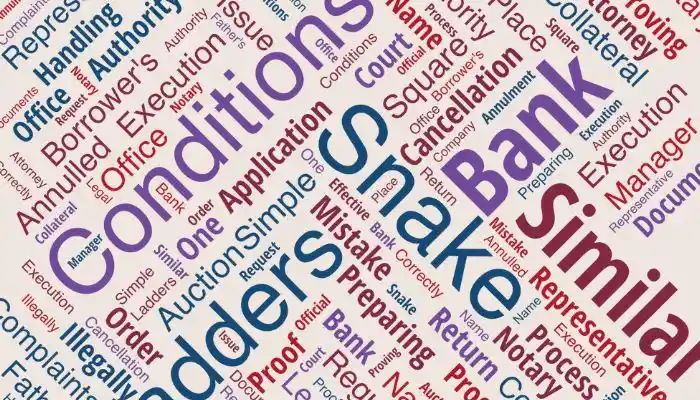Like the game of Snakes and Ladders, a simple mistake by the bank in preparing the application can lead to the cancellation of the auction and a return to square one.
In this case, we are faced with a situation that can be compared to the game of Snakes and Ladders; a simple mistake in preparing the application has resulted in the cancellation of the auction and a return to the starting point.
The details of this case are as follows:
An unknown individual, acting as the representative of the bank that issued the loan, prepared the application for an execution order and submitted it to the notary office to collect what the bank was owed from the borrower’s collateral.
At the same time as this application was submitted, the individual did not provide proof of his authority as the bank’s representative to enforce the application, and the execution process began illegally. Upon filing a lawsuit, the court annulled the entire application and execution process, effectively returning the bank and the borrower to square one, much like in the game of Snakes and Ladders.
Article 3 of the Regulations for the Execution of Official Documents and the Procedure for Handling Complaints about Executive Operations states that the application for the issuance of an execution order must be prepared according to a specific form and must include the name, surname, identification number, place of issue, father’s name, date of birth, national ID number, place of residence, and other relevant information about the execution order or the legal representative. Additionally, if the request for execution is made by an attorney, company manager, or other legal representatives, documents proving the applicant’s authority must be attached.
Therefore, if the application form lacks the mentioned conditions, such a document will not be executable, and essentially, the notary office should not accept the application for the issuance of an execution order from a person without authority. If it is accepted and registered without adhering to these conditions, it will not be effective in the Office for the Execution of Official Documents. However, the annulment of the application for the issuance of an execution order does not prevent a new application, and the bank can correctly request the execution of the official documents from the notary office.
In this note, it was discussed that a simple mistake in preparing the application can result in the annulment of the auction and a return to square one.




